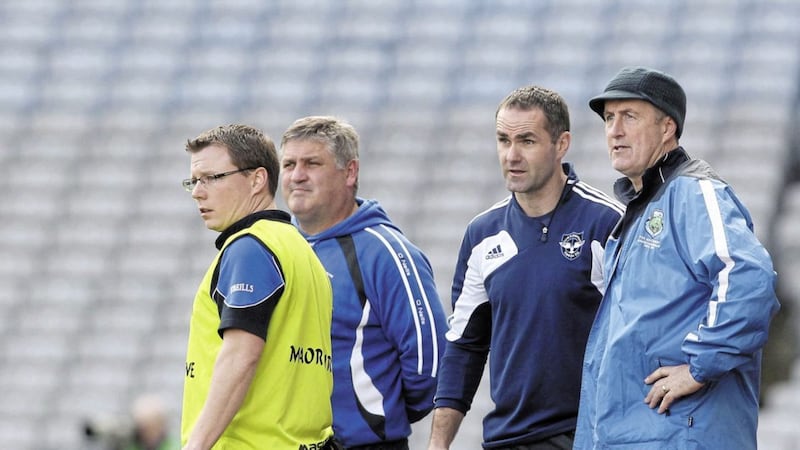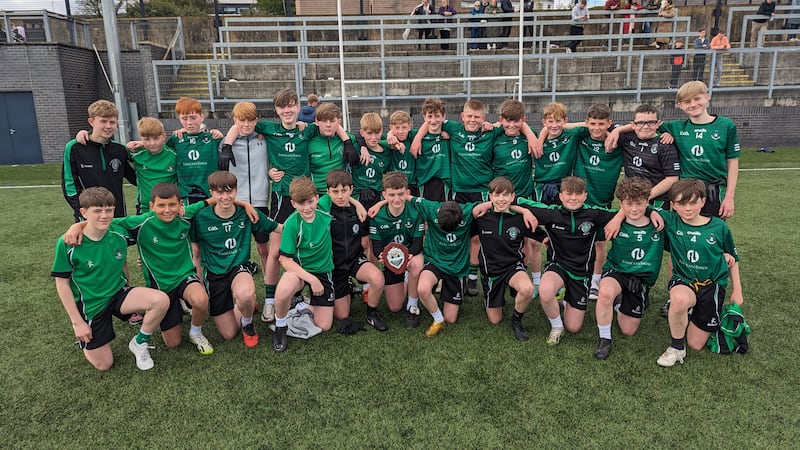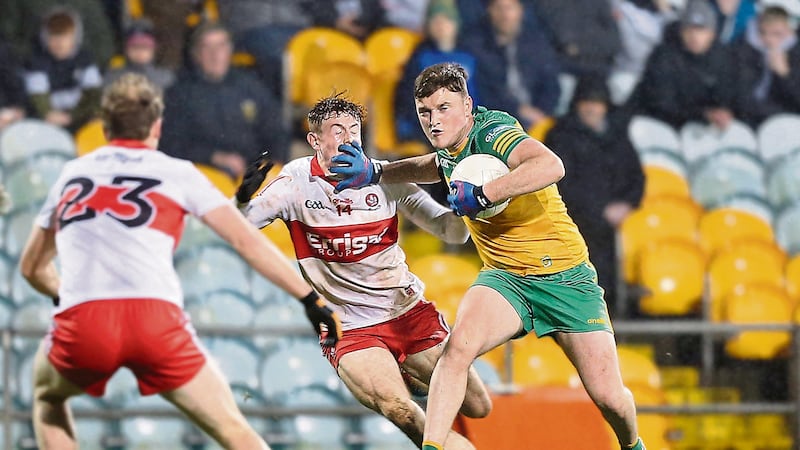Age: 51
Club: Glenullin
Position: Half-forward
When did you play for Derry?
1983-1998. I first started playing for the Derry minors in 1980 when I was 14 - that doesn’t happen too much any more.
What do you do nowadays?
I’m head of boys’ PE at St Patrick’s, Maghera. I’m there since ’94 and there a while yet - I enjoy every second of it.
Are you still involved in Gaelic football?
I take the MacRory team in the school, I’m vice-chairman of Glenullin this last number of years, I’m managing the U16s at the club and I’m working with Rasharkin senior football team this last two years. So I’m kept busy.
What do you remember about your first game for Derry?
We won the All-Ireland minor title in September ’83 and then my first senior game was later that year against Louth in Swatragh, a National League game. We beat them by two or three points, and I think Damian Cassidy might have made his debut the same day. I was called up at the last minute to play in a team that included men like Joe Irwin, Gabriel Bradley and John Somers.
What’s your best memory from your playing days?
I’ll tell you what, the thing that really sticks out is winning the county championship with the club in 1985. I was captain, and I remember us bringing the cup to Glenullin, meeting my mother and father... it was unreal. I’ll never forget it to the day I die. I won a fair bit in my time but, for me, that was the pinnacle.
I was only 19 and I thought it would happen year after year because we had a tremendous group of players at that time, a very young team. But the following year we lost five or six players to emigration and that killed us.
With Derry, obviously you could never forget ’93 – and then the following year to go up to Celtic Park and get knocked out [by Down]. Everybody talks about that as if it’s the greatest game of all time, but it wasn’t for us!
Really, Down coming out of nowhere to win in ’91 spurred on the rest of the Ulster teams, us included. All of a sudden you were thinking ‘hold on a wee second, we’re not going to Croke Park to get beat in semi-finals’.
Seeing Down win gave us all confidence. It was the turning point for Ulster football, I genuinely believe that. It changed people’s outlook. We no longer saw ourselves as second class citizens – we knew we could go down and represent Ulster and win.
And the worst?
The worst day is getting beat, any day. I’ll tell you what though, the ’81 MacRory final still sticks with me. I’ll never forget that. Greg Blaney was the captain of St Colman’s that year but Tommy Sands scored the last minute goal – it was a horrendous, horrible day and we were a point up coming up to the end and he got the goal that won it for them.
It’s funny how all these years later it still sticks with me. Carmelite College, Moate ended up winning the Hogan Cup that year – we had played them in a friendly in Bellaghy and beat them by about 20 points.
That’s why you look back and think, with that Tommy Sands goal, we lost a Hogan that day.
Biggest character you played with?
Gaelic football is a competitive sport but you make so many friends. There’s people I could ring today from all over the place and meet up with, and that’s the great thing about the GAA.
Between Derry, Ulster, Ireland, there’s so many characters you could write a book about them. I also worked with some of the best managers of all time, when you look at Adrian McGuckin, Eugene McGee, Kevin Heffernan, Mick O’Dwyer, Eamon Coleman. I’ve been blessed.
Any regrets?
Maybe I should’ve gone to Australia at 18 when I was first offered instead of at 23, but then I’d have missed out on winning the championship in 1985 – so no, no regrets whatsoever.








